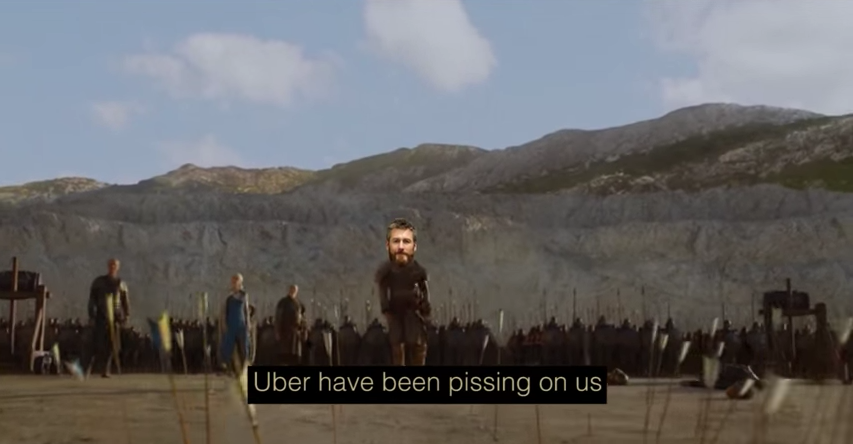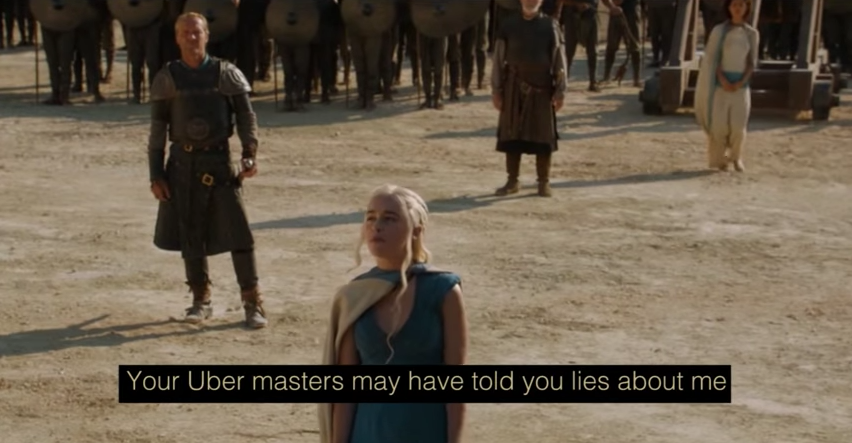
A man has been permanently banned from making civilian arrests of Uber drivers after he made nine over a 10-month period, while also sending provocative tweets and garnering media attention for his cause.
In a decision handed down April 3, the Supreme Court of New South Wales, Australia, banned Russell Howarth from arresting, attempting to arrest, or threatening to arrest people using Uber, driving for Uber, or working for Uber.
The only exception is if the arrest is in relation to a serious offence.
In October 2014, Howarth embarked on a campaign against UberX, which he claimed was illegal in NSW under the Passenger Transport Act 1990.
As part of the "Arresting Uber" campaign, Howarth made nine citizen's arrests, oversaw five others, and stalked an Uber driver through Sydney.
On his now offline website arrestinguber.com, Howarth claimed he was a former London Metropolitan police officer and had worked on counterterrorism at MI6.

The court identified a pattern in Howarth's tactics: He would order an Uber, tell the driver he thought they were breaking the law over the course of the ride, perform a citizen's arrest at the destination, and then call the police.
Justice Michael Slattery found that over the 10-month period of the arrests, Howarth was also responsible for tweets posted from three separate accounts: @arrestinguber, @beenubered, and @freespeaktweet.
Some of the tweets sent by @arrestinguber include the following:
1 November 2014: "Whilst watching the Apprentice I have had a brainwave to seriously hurt Uber – give me few days [sic]…absolute KILLER!"
10 November 2014: "Ah dear Uber – I’m in another ILLEGAL UberX vehicle. Another arrest is imminent – he too has been LIED to! Tut tut Uber & I will not stop!"
13 November 2014: "Just had the first resist – but force as was necessary to effect the legal arrest – more soon. Police en-route!"
25 November 2014: "Uber are not happy about this all…not happy one little bit…& know this @uber – I am merely warming up…time to "weaponise'"
26 November 2014: "…know this Uber. I will not rest now til you are finished."
On 30 June 2015, @freespeaktweet posted: "Oh dear – just booked an ILLEGAL uber x car & an arrest is imminent !!"
On the same day, Howarth was present at a mass citizen's arrest of five Uber drivers at Leichhardt Park in what the judge described as "a terrifying incident for all the drivers involved".
The court also viewed a bizarre anti-Uber Game of Thrones parody video that shows Howarth as one of the heroes in a pivotal scene focused on the freeing of slaves and ends with the message: “Don’t be a slave to Uber."

The video, Justice Slattery wrote, persuaded him that Howarth "considers himself a champion of this cause" and "shows an attitude that he believes he is conducting a revolution against Uber".
"Throughout the clip, the symbolic footage depicts slaves being liberated from the shackles of their masters by Mr Howarth and characters representing his associates," the decision read.
"Images of faces superimposed upon the Game of Thrones characters attempt to paint the picture of Uber executives, politicians and supporters assuming the position of masters, seemingly enslaving a population of UberX drivers.
"Relevantly, in the course of the footage, an image of Mr Howarth’s face is also superimposed upon the male ‘champion’ in the footage, who helps to defeat the masters and liberate the masses of slaves from the throes of UberX, so that they may join the likes of On Tap and other UberX competitors."

The court found Howarth's primary motive for the multiple citizen's arrests was hurting Uber, and therefore the arrests were unlawful.
It also found that the arrests were not necessary, given that the drivers would have been easily identifiable if Howarth had simply reported them to the police.
The court did not determine whether Uber drivers were in violation of the Passenger Transport Act 1990, agreeing with Uber that it was not necessary in order to make a decision on Howarth's actions.
